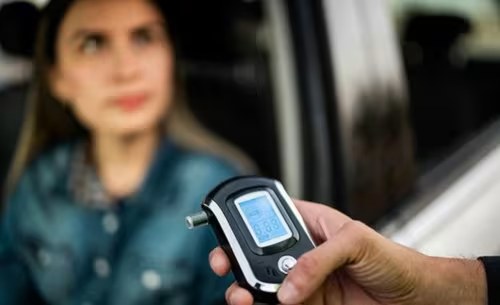Disclaimer: This guest post was written by a third party and is for informational purposes only. It does not constitute legal advice or create an attorney-client relationship with The Meehan Law Firm. For legal advice, please contact our office.
.png)
.png)
California takes driving under the influence extremely seriously, particularly for those who become repeat offenders. The state's DUI laws are crafted to not only penalize individuals but also to prevent future offenses through stricter, escalating consequences. For anyone facing a second, third, or even fourth DUI, understanding the key points about California's approach is critical.
Stricter Penalties for Repeat DUI Offenses
California law imposes increasingly harsh penalties for each subsequent DUI conviction within a 10-year "lookback" period. This timeframe includes prior DUIs, as well as "wet reckless" convictions, which are considered DUI-related. Penalties and minimum sentence requirements escalate sharply with each offense to deter repeat behavior and protect public safety.
For a second DUI offense, penalties typically include:
- A mandatory minimum jail sentence of 10 days in jail, up to a maximum of one year
- Fines and penalties ranging from $390 to over $4,000
- A two-year driver's license suspension
- Mandatory DUI education program of at least 18 months and lasting up to 30 months
- Installation of an ignition interlock device (IID)
A third DUI offense brings even tougher consequences:
- Mandatory minimum jail time of 120 days, potentially extending to one year (the minimum sentence will increase to 180 days starting next year).
- Fines that can exceed $3,000 with penalty assessments
- A three-year driver's license revocation
- Being designated a “Habitual Traffic Offender" which will increase all traffic violations going forward.
- Mandatory IID installation for at least two years
Fourth and subsequent offenses are typically charged as felonies, leading to:
- 16 months, two years, or three years in state prison
- A four-year driver's license revocation
- Substantial fines and fees
- Formal probation and mandatory completion of DUI education programs and any other terms or conditions as the court deems appropriate.
License Suspensions and Revocations
License consequences intensify for repeat DUI offenders. After a second or third offense, the California Department of Motor Vehicles (DMV) imposes administrative license suspensions, often separate from court-imposed penalties. Repeat offenders may face mandatory IID installation even to obtain a restricted license. Without compliance, individuals risk losing their driving privileges for years.
A fourth DUI offense generally results in a full revocation, making it extremely difficult to regain driving rights without going through complex reinstatement processes, including proof of continued sobriety and completion of extensive rehabilitation programs.
Mandatory Jail Time and Alternatives
While first-time DUI offenders often avoid significant jail time, repeat offenders almost always face mandatory incarceration. California law mandates minimum jail sentences that increase with each new offense. For third or fourth offenses, jail time may escalate into long-term imprisonment.
Some counties in California allow alternative sentencing options such as residential treatment programs, house arrest, work release programs, or sober living facilities, but these are generally reserved for individuals who demonstrate a serious commitment to rehabilitation. Judges have limited discretion, and courts prioritize public safety when evaluating alternative sentencing eligibility.
Long-Term Financial Burdens
The financial repercussions of multiple DUI convictions are severe. Offenders must pay substantial court fines, DUI education program fees, IID installation and maintenance costs, higher car insurance premiums, and DMV reinstatement charges. Many offenders also face lost wages due to incarceration or restricted driving abilities.
The compounded financial burden of repeat offenses often exceeds tens of thousands of dollars over time, making prevention and early legal intervention crucial.
Impact on Criminal Record and Employment
A second or third DUI is classified as a misdemeanor unless aggravating factors exist, such as bodily injury. However, a fourth DUI within 10 years is a felony, leading to lasting criminal consequences.
A felony DUI conviction severely impacts employment opportunities, particularly in professions requiring driving, licensing, or background checks. Even multiple misdemeanor DUI convictions can tarnish a record, limiting prospects for promotions, professional licensing, or certain government jobs. Some employers view multiple DUI convictions as an indication of alcohol addiction or substance abuse, so they are reluctant to consider the employee until they have proven sobriety or that they have addressed the addiction concerns.
Mandatory DUI Education Programs
California requires DUI education as a critical component of sentencing for repeat offenders. These programs can last up to 30 months for individuals with multiple convictions. The curriculum includes counseling, alcohol and drug education, relapse prevention, and group sessions focused on behavioral changes to prevent future offenses.
Failure to complete court-ordered DUI programs results in probation violations and could lead to additional penalties, including extended jail sentences and license revocation. The DMV will not reinstate an unrestricted drivers license unless the mandatory DUI program is completed.
Ignition Interlock Device Requirements
Since the enactment of California's statewide ignition interlock device law, repeat DUI offenders are almost universally required to install an IID in their vehicles. This device requires the driver to pass a breath alcohol test before starting the car. Repeat offenders may be required to use an IID for up to two years following a second DUI and even longer after subsequent offenses.
Compliance with IID requirements is essential for regaining driving privileges and demonstrating a commitment to sobriety.
Probation Conditions for Repeat DUI Offenders
Most repeat DUI offenders are placed on probation following their jail sentence. Typical probation terms include:
- Abstaining from alcohol and drugs
- Submitting to random testing
- Attending and completing DUI education or treatment programs
- Avoiding further criminal offenses
- Installation and maintenance of an IID
- Order to not drive with any measurable amount of alcohol in your system (so BAC limit is 0.01 while on DUI probation).
Violation of any probation conditions can lead to immediate jail time, additional fines, or extended probation periods, and new charges or cases being filed against you.
Repeat DUI Convictions Are Life-Altering
California's approach to repeat DUI offenders is grounded in deterrence and public safety. The state's escalating penalties are designed to create meaningful consequences that discourage repeated risky behavior.
Understanding the serious consequences of repeat DUI offenses underscores the importance of early legal intervention, rehabilitation efforts, and personal commitment to avoid future violations. For those facing multiple DUI charges, seeking experienced legal representation, such as The Meehan Law Firm, and focusing on rehabilitation is critical to minimizing long-term damage.
(844) 4-DUI STOP
Categories
Need Help?
Free Consultation, discreet, and no obligation- talk to an attorney.
More Blogs

How Can You Defend Someone Who Is Guilty?
Defense attorneys protect constitutional rights, ensure due process...
Read More..
Why a Second DUI Might Be Your Wake-Up Call
Facing a Second DUI in California: Why It Should Be Your Wake-Up Call..
Read More..
How To Spot a Bad DUI Lawyer in 10 Minutes or Less
Choosing the Right DUI Lawyer in California: Spotting Red Flags Early...
Read More..



